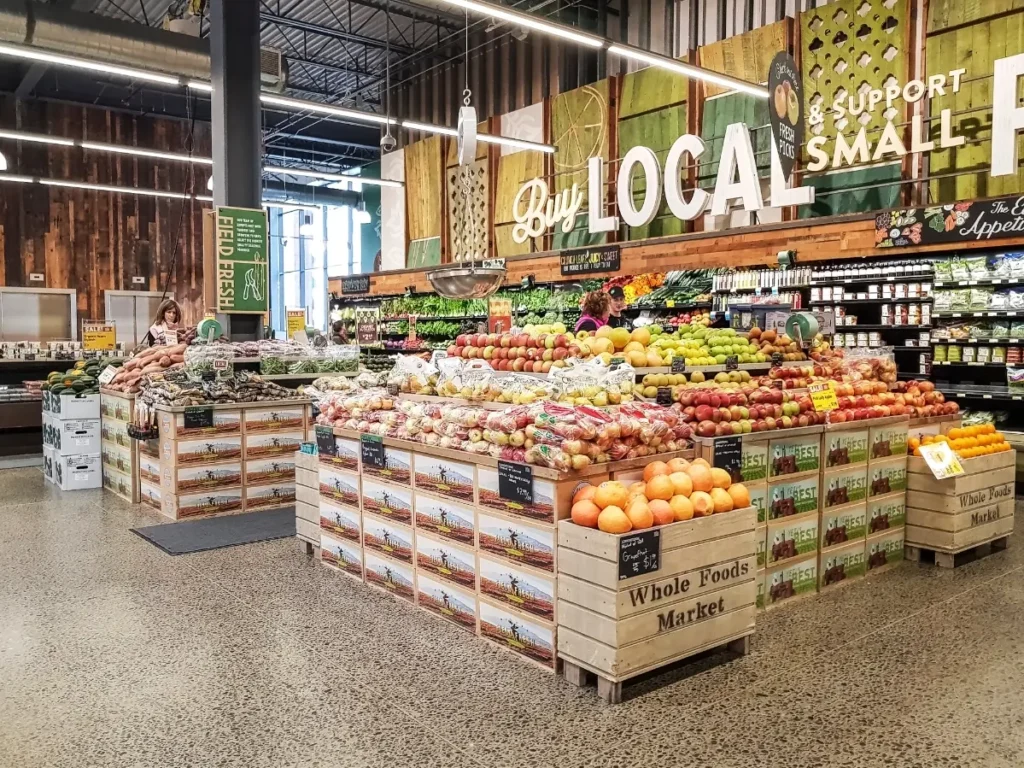When traveling to Jersey, visitors from the UK and other parts of the world might notice something peculiar about the local supermarket scene. Unlike other places in the UK, Jersey does not host Tesco, Asda, or Sainsbury’s stores. Instead, shoppers might encounter a Morrisons that isn’t quite the Morrisons they know, or a different version of the Co-op. Despite these differences, the shelves are still stocked with familiar UK brand products, a variety of local produce, and a surprising amount of Carrefour products.
This blog post delves into the reasons behind these unique retail dynamics, exploring how Jersey’s status, regulations, and consumer preferences shape its supermarket offerings.
Jersey’s Distinct Status
Jersey is not part of the United Kingdom; it is a Crown Dependency. This means that while the island defends itself and conducts international relations through the UK government, it has autonomy in several areas, including taxation, commerce, and legislation. This distinct status significantly impacts the types of businesses that operate on the island, including retail chains.
Regulatory Differences
The regulatory environment in Jersey is different from that of the UK, influencing which companies decide to establish operations here. Jersey sets its own import tariffs and VAT rates, which can affect the pricing and availability of goods. This independent regulatory framework can be a hurdle for UK-based supermarket chains like Tesco, Asda, and Sainsbury’s, which operate under UK-specific regulations and economies of scale that do not necessarily translate to Jersey’s market.
Consumer Preferences
Another pivotal factor is the difference in consumer preferences. In Jersey, there is a stronger inclination towards luxury and high-quality products, reflecting the generally higher income levels and living standards. This contrasts with the UK where, on average, there is a higher demand for value products. Supermarkets in Jersey, therefore, tailor their product selections to cater to local tastes, which may not align with the business models of some UK retail giants.
The Case of Morrisons and Sandpiper
In Jersey, the Morrisons stores that one does find are not direct branches of the UK chain but are instead operated under a franchise agreement by Sandpiper, a major player in the Channel Islands’ retail market. Sandpiper has licensed the Morrisons brand to replace its former Safeway stores, and thus the products and operations are tailored to fit the local market while still carrying the Morrisons name. This model allows Morrisons to have a presence on the island without directly managing operations or adapting their mainland business strategies to fit Jersey’s unique market.
The Co-op’s Different Operation
Similarly, the Co-op in Jersey is not operated by the Co-operative Group based in the UK but by a local society. This society is part of the Co-operative Group in terms of membership but operates stores independently. This allows them to adapt to the local market conditions, regulatory environment, and consumer preferences more effectively than if they were directly managed from the UK.
Product Availability: A Blend of Local and International
Despite these differences in supermarket branding and management, shoppers in Jersey still have access to a wide range of products. Local produce is prominently featured, showcasing Jersey’s rich agricultural heritage, particularly its renowned Jersey Royal potatoes and dairy products from the famous Jersey cows.
Moreover, the island’s supermarkets stock a substantial selection of products from Carrefour, a reflection of Jersey’s proximity to France and the historical and cultural ties between the island and mainland Europe. This adds a unique European dimension to the shopping experience in Jersey that is not typically found in UK supermarkets.
Conclusion
The retail landscape in Jersey offers a fascinating glimpse into how geography, regulatory environments, and consumer preferences can shape the market in unique ways. The absence of major UK supermarket chains like Tesco, Asda, and Sainsbury’s, and the adapted presence of brands like Morrisons and Co-op highlight the island’s distinct economic and regulatory climate. Meanwhile, the availability of both local and international products caters to the diverse tastes and high standards of Jersey’s residents and visitors, creating a retail environment that is distinctly Jersey.
This mix of local charm, international influence, and adapted business models not only makes shopping in Jersey a unique experience but also reflects the island’s broader character as a place where different cultures and economies meet and mingle. For anyone interested in the intersections of commerce, culture, and geography, Jersey’s supermarkets offer a compelling case study.






